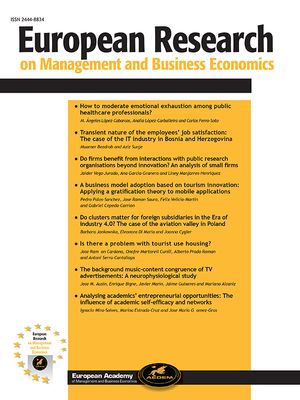El presente trabajo analiza las características de los programas que se están implantando en las universidades españolas para fomentar la creación de spin-offs, mediante una comparación con los existentes en un conjunto de universidades europeas. Los resultados obtenidos indican que la existencia de programas de apoyo a la creación de spin-offs en las universidades españolas es reciente y el número de personas que se dedican a apoyar esta actividad es reducido. En consecuencia, el éxito que se obtiene en las actividades de fomento de la cultura emprendedora y en la búsqueda y detección de ideas, así como el apoyo prestado, es limitado.
The present work analyzes the characteristics of the programs that are implanting in the Spanish universities to foment the spin-offs creation, by means of a comparison with the existent in the European universities. The obtained results indicate that the existence of support programs to the spin-offs creation in the Spanish universities is recent and the number of people that you/they are devoted to support this activity is reduced; in consequence, the success that is obtained in the activities of development of the entrepreneurship culture and in the search and detection of ideas, as well as the borrowed support, it is limited.
El presente trabajo es el resultado de un proyecto Universidad-Empresa titulado “La generación de ideas/proyectos y personas emprendedoras en la UPV/EHU. Análisis de la situación actual y propuesta de medidas para el incremento de la creación de empresas de base tecnológica en la UPV/EHU (spin-off académico)”, desarrollado entre enero de 2004 y abril de 2006, y financiado por la Universidad del País Vasco y BIC BERRILAN.





